As we’ve previously mentioned, COP26 is packed with thousands of people each day (according to news reports, more than 30,000 people are in attendance.) Each of these attendants is designated with a certain status/classification which include: observers (mostly civil society and NGOs), media/press, and party members (heads of state, negotiators, and their staff members). (FYI, Melissa just posted a blog and does an amazing job discussing more about these dynamics.) While we are recognized by the UNFCCC as official delegates, our observer status signifies not just our current roles, but also lets us know which spaces we can actually have access to.
Today, Alicia and I decided to visit the Green Zone — The Green Zone is a separate space where the public can get access to events, exhibitions, workshops and talks hosted by civil society, artists, business and other groups from across the UK and all over the world. This year, the Green Zone is at the Glasgow Science Centre which is around an 8-10 minute shuttle ride (GMaps says 5 minutes, but it’s definitely longer) from the Blue Zone, located at the Scottish Events Campus.
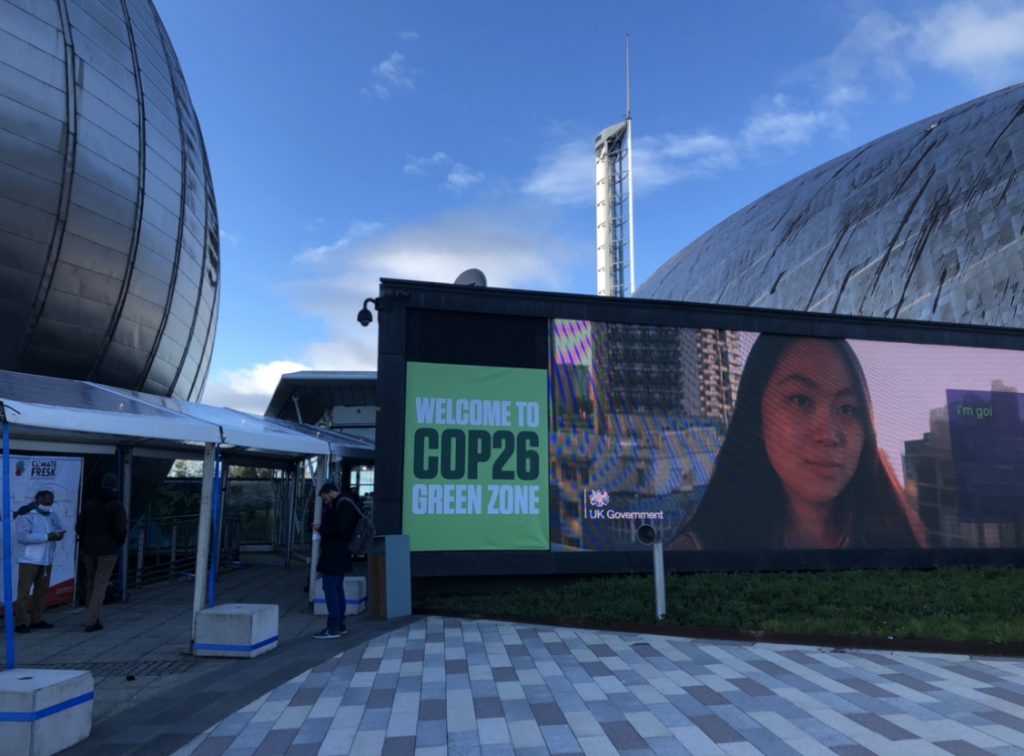
Outside of the Green Zone 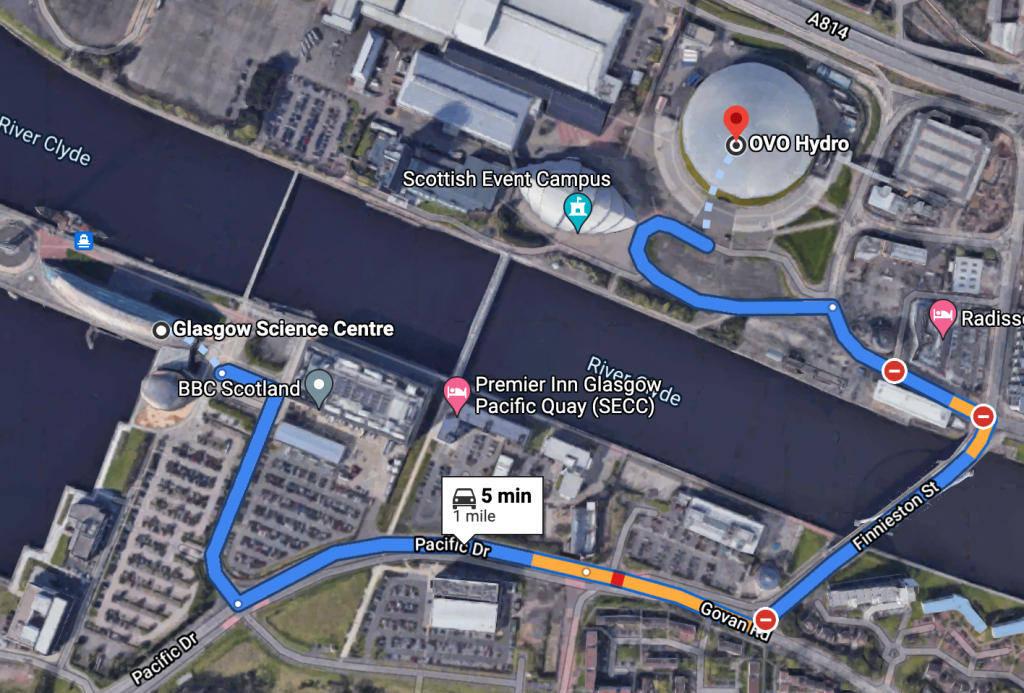
Map from Blue Zone (OVO Hydro) to Green Zone (Glasgow Science Centre)
We decided to attend an event there entitled: Role of Indigenous peoples and their communities and nature-based solutions. While I won’t use this blog to go in depth about their discussions, I do want to point out a particularly interesting moment of the session. The Indigenous group (including José Gregorio Díaz Mirabal and Tabea Cacique), who spoke only Spanish and Portuguese, was halfway disrupted by a Scottish woman who exclaimed: “Some us only speak English here!”
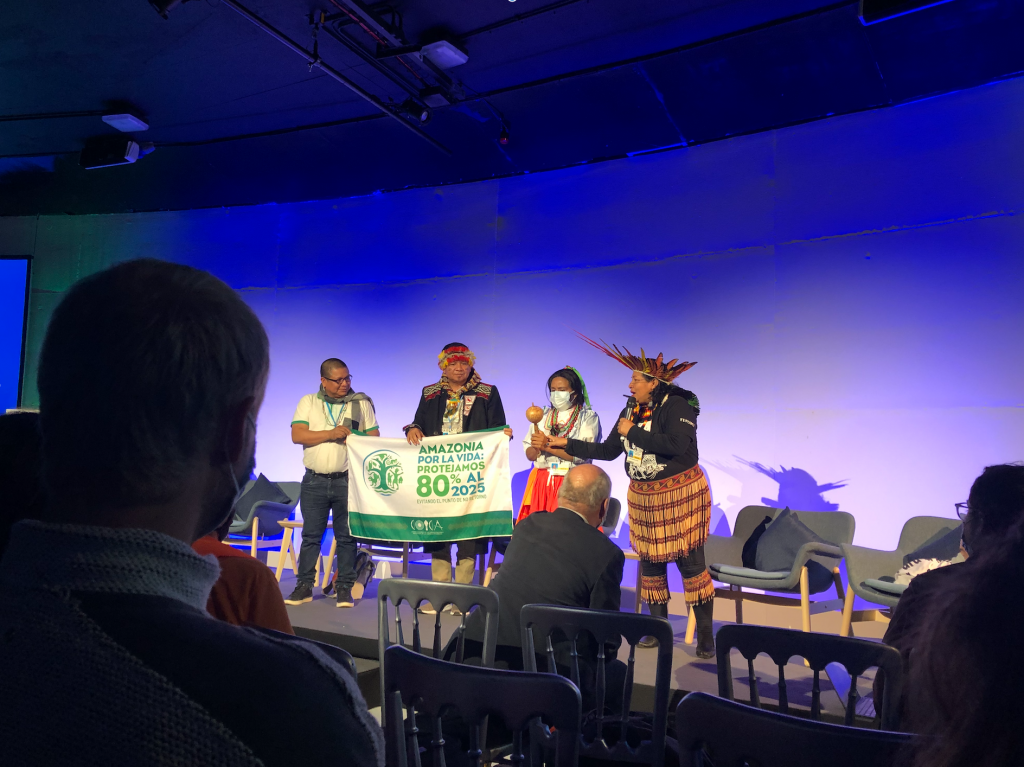
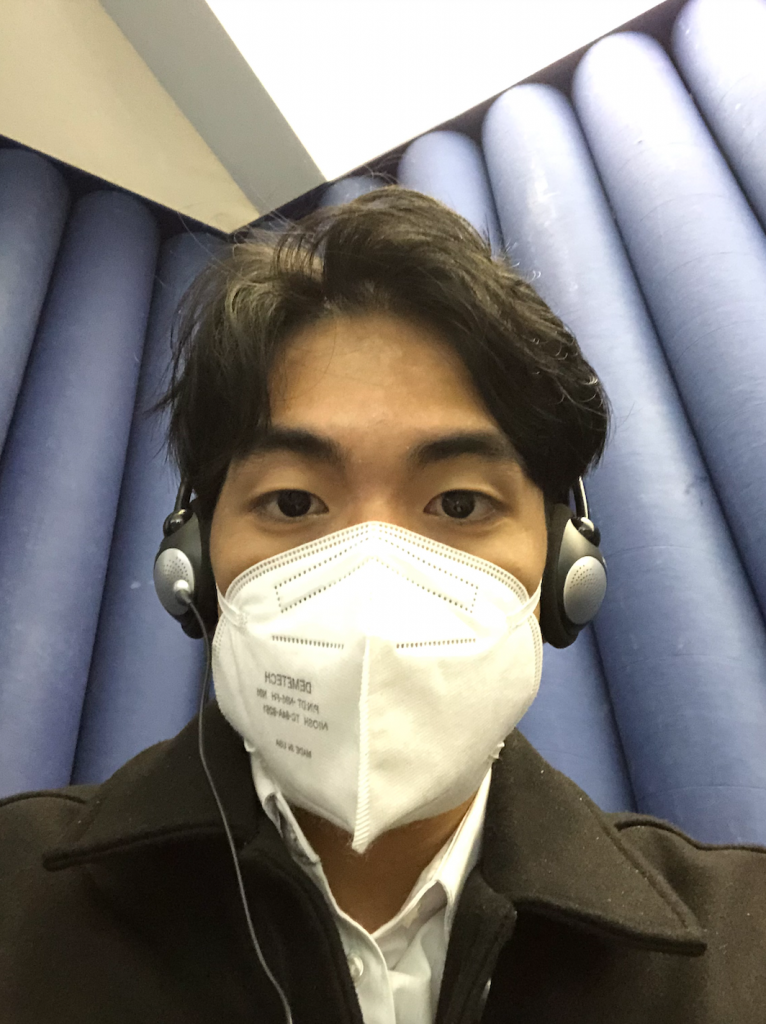
Just to give the full context to this story, there were no official translators present in the discussion, nor did the event supplied us with the headphones that I was able to use at the blue zone to help me hear and translate the language. (Heres a pic of me using one — it has six channels including languages like English, Spanish, Chinese, etc.) Later on, a crowd member volunteered to translate which allowed us to carry on.
While I would like to believe that this woman’s sudden interruption was not out of malice, but merely out of frustration and an (extreme!) eagerness to understand the group, I could not help but be bothered about the larger structural issues present: barriers in communication. Sessions at COP26 are mostly in English which really puts those that are from non-English speaking countries at a big disadvantage — whether that be in activism or negotiations. Communication and participation are so closely related, and at a place like COP… it is perhaps the most crucial aspect.
After that event, Alicia and I headed to our very first plenary focused on discussing what can be done to enhance the scale and effectiveness of climate finance. Plenaries are sessions which are generally available to everyone (for the last two days, it was not open to observers) where they have panelists to discuss a certain issue and provide heads of states, ministers, and (at the end, if there is time) observers the chance to speak. We had the opportunity to sit very closely to the middle of the stage, just behind the Guyana and Guinea-Bissau delegation. Not every country was present — whether that was due to other commitments or rather the inability to send anyone to the conference, it is important to point out that many of these absent delegations included nations from Africa and the Pacific.
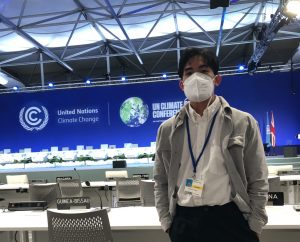
Sat behind Guinea Bissau
(who was not present today)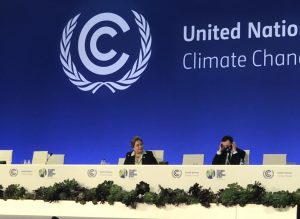
Current UNFCCC Executive Secretary Patricia Espinosa & UK Lead Negotiator Archie Young
Nonetheless, we were still able to recognize some familiar government officials, including Philippine lead negotiator and current Secretary of Finance Carlos Dominguez. Alicia and I had the chance to meet and chat with him where he asked us about our role here, experience, and background (Of course, I had to let him know that I was Filipino as well!)
If you’ve been keeping in touch with my blogs and comments, I have raised my concern about the ways that the Philippine delegation was approaching COP26. Taking this very rare opportunity, I decided to discuss this with Dominguez and his party about their chosen representation. They shared with me that they decided to have a small group out of a “respect for the UK’s requests” and also their goals in bolstering the group with finance officials and experts due to the important discussion of climate finance.
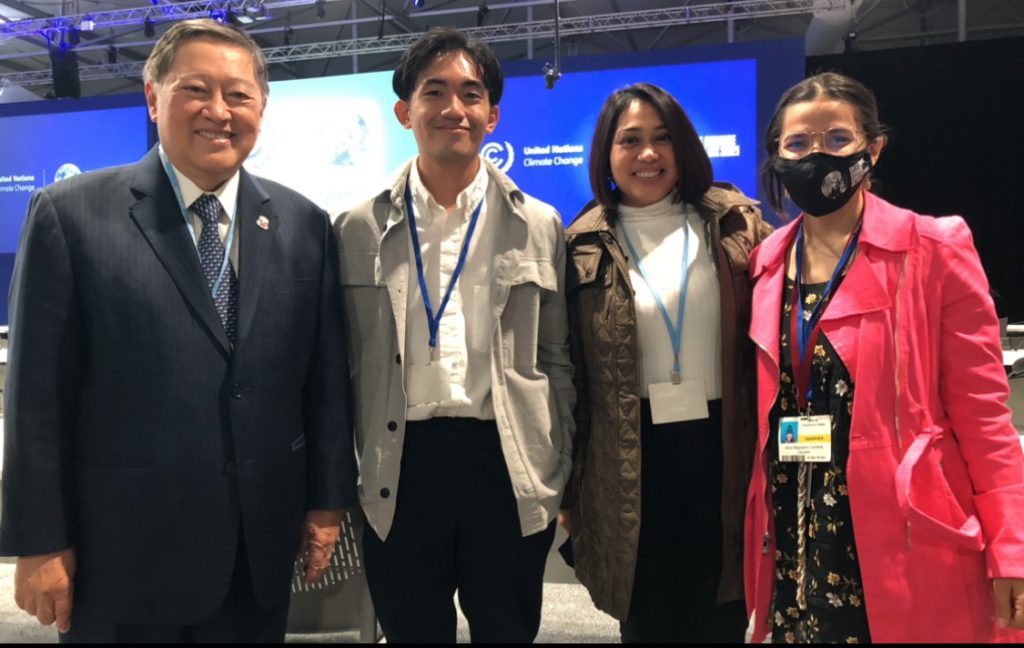
It was a definitely an exciting moment to have had this moment to speak with him and the Philippine party. However, my point underscoring the importance of having representation like climate justice activists, scientists, and Indigenous members still stand.
I had a great time being in this session (will hopefully write a blog getting into the specifics of a plenary!), and being so close to so many influential people… Yet, I can’t help but be disappointed in the other important people that are still left out of these room. Despite great efforts to have a more inclusive COP, issues in representation and participation still remain.
I am trying to make the most of my limited experience here, and will definitely be more in the plenary sessions (and hopefully be able to make a statement and/or ask a question if given the opportunity.) For now, I’ll settle with my five seconds of fame after being featured next to the Nepali lead negotiator during the plenary session. (I can’t seem to find the video — but rest assured, I will add that link as soon as I get access to it.)
Hi Daniel,
I really appreciate this post about participation and representation at COP. You comment that “communication and participation are so closely related” was underscored during my time at COP21 where draft text was mostly only available in the official UN languages. I’m discouraged that this hasn’t improved and it sounds like inaccessibility is heightened with those impacted by COVID restrictions, especially from Pacific and African nations. I’m glad that you and Alicia made efforts to visit the Green Zone and that you got to speak to the Philippine delegation!
All the best,
Indy Reid-Shaw’ 17